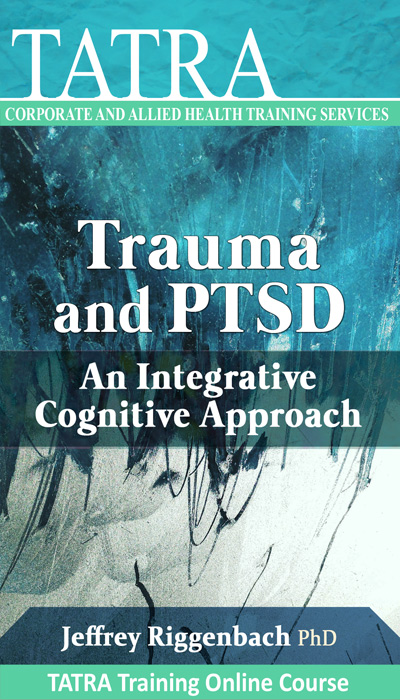03 Aug Trauma and PTSD: An Integrative Cognitive Approach

Cognitive and exposure-based approaches have largely been considered the “gold standard “of treatment for PTSD for many years, and even with the emergence of newer modalities, remain strongly recommended forms of treatment by the APA. Cognitive Therapy (CT), Prolonged Exposure (PE) and Cognitive Processing Therapy (CPT) all have strong evidence bases for helping individuals afflicted by trauma and PTSD find relief from symptoms.
Issues related to distorted appraisal, lack of habituation, and disjointed memories are among the areas of focus emphasized in these treatments. This 6 hour virtual workshop will explore theoretical constructs of cognitive approaches, present an integrated model emphasizing commonalities in empirically supported treatments, and offer practical strategies for amelioration of symptoms.
Leave this training a more trauma-informed clinician, armed with practical, evidence-based strategies that you can implement in your setting immediately to help your clients decrease PTSD related suffering and improve their quality of life!


1. Describe symptoms of PTSD and contrast with C-PTSD
2. Discuss neurobiology of trauma and implications for working with clients
3. List 1 schema linked to PTSD that activates the threat response system
4. Identify 3 cognitive distortions that exacerbate threat-based appraisals
5. Analyze commonalities in empirically supported exposure-based approaches to treatment
6. Implement a three-phase approach to treating clients with PTSD
7. Discuss the roles cue-driven triggering, negative appraisals, and disjointed memories play in symptom maintenance
8. Identify modifiable maintenance factors to target with adaptive coping responses
9. Facilitate trauma narrative work
10. Utilize silver lining technique to facilitate acceptance, reclaim aspects of former self, and contribute to society in unique and new ways
11. Utilize nightmare rescripting to decrease/eliminate recurring nightmares
12. Silence shame, come out of hiding, and promote post-traumatic growth


Jeff Riggenbach, Ph.D., LPC, is one of the most sought-after educators in North America in the area of CBT, personality disorders and addictions. Over the past 20 years he has developed and overseen CBT based Mood Disorder, Anxiety Disorder, Borderline Personality Disorder treatment programs at two different psychiatric hospitals serving over 3,000 clients at multiple levels of care. Dr Riggenbach trained at the Beck Institute of Cognitive Therapy and Research in Philadelphia, is a Diplomat of the Academy of Cognitive Therapy, and has presented in all 50 United States, Mexico, Australia and Canada on topics related to CBT, DBT and Personality Dysfunction.
Dr Riggenbach has authored four best-selling books, including Borderline Personality Disorder Toolbox: A Practical Evidence-Based Guide to Regulating Intense Emotions (2016), which was Amazon’s #1 new release in its category,
The Personality Disorder Toolbox: The Challenge of the Hidden Agenda, and his most recent Disarming High-Conflict Personalities: Dealing with the Eight Most Difficult People in Your Life Before They Burn You Out.
Jeff is known for bridging the gap between academia, research findings and day-to-day clinical practice, and his seminars on DBT, CBT, and Schema-Focused Cognitive Therapy receive the highest evaluations in terms of clinical utility as well as entertainment value.

This online workshop will give you instant access to 6 sessions of video content, accessible via streaming on our website, as well as downloadable PowerPoint slides (PDF).
The duration of this workshop is 6 learning hours.
You can view the course content in your own time, there is no time limit on access.
A certificate of completion will be generated upon finishing the course and completing a multiple-choice assessment test (24 questions). Please consult your professional organisation/association to confirm whether you are able to claim any CPD points/hours for this online workshop.



